INTERVIEW | The political career of former Sabah deputy chief minister Christina Liew has not been a straightforward one but rather a testament to patience and resilience.
Indeed, she was only elected to Parliament at the fourth time of asking when she won the Tawau parliamentary seat in the historic 14th general election that saw the once omnipotent BN coalition defeated at the federal level.
She had previously lost when contesting the same seat for Parti Bersatu Sabah as far back as 1986 and had also suffered two defeats after joining PKR.
This came in the Gaya by-election in 2002 as well as a narrow defeat in the 2008 general election when running for the Kota Kinabalu parliamentary seat. She was also a losing candidate in the Likas state assembly by-election in 2001.
However, the tide has turned ever since she won the Api-Api state seat (which falls under the Kota Kinabalu parliamentary seat) in 2013 and Liew has gone on to retain it twice. She also made history as only the second female deputy CM of Sabah after Ariah Tengku Ahmad, who served in 1993-1994.
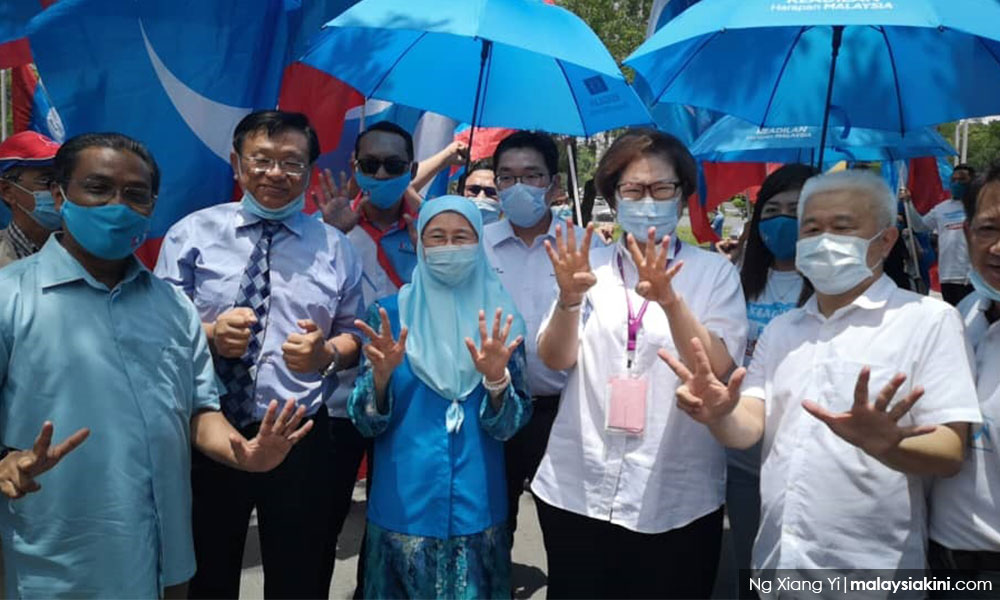
Following the latest political upheaval in Putrajaya that resulted in Ismail Sabri Yaakob replacing Muhyiddin Yassin as prime minister but heading a very similar cabinet, Liew was left disappointed.
“When I look at the line-up, I realise that the new PM is not game enough to change the status quo. He appears to be afraid to rock the equation.
“There isn't any significant change in the composition of the new cabinet compared with the previous one under Muhyiddin. Ideally, there should be new blood, new faces to restore public confidence in the government of the day.
“Those who had ostensibly failed to deliver the goods in the last administration should have been replaced to give competent elected representatives a chance to serve the nation,” she told Malaysiakini in a recent interview.
Cautious optimism over MoU with govt
Liew did however hold some optimism following the seven reforms proposed by Ismail Sabri to Pakatan Harapan as part of a memorandum of understanding (MoU) to bring stability to the country, saying she believes the reforms are a good start.
"They are a good start yet not deep enough - hence, Harapan is proposing an even more comprehensive list.
"Bear in mind, our understanding with the government does not bar us from performing our constitutional duties as His Majesty's loyal opposition.
"As such, we will continue to provide constructive criticisms as well as checks and balances on the executive via Parliament," she said.
Liew said that the MoU is a very limited form of cooperation, only on very specific things or areas.
"We will continue to speak our minds and stand up against injustices, transgressions and wrongdoings," she added.
Many Sabahans who supported Muhyiddin’s Perikatan Nasional/BN hybrid and Bersatu’s Hajiji Mohd Noor taking the chief minister post have observed with growing dismay PAS flexing its muscles at the federal level, particularly as it now holds both the minister and deputy minister positions for religious affairs.
Earlier this week, Deputy Minister in the Prime Minister’s Department (Religious Affairs) Ahmad Marzuk Shaary said the federal government plans to draft four new Syariah laws, including a bill that will restrict other religions from propagating their beliefs in Malaysia.
Hajiji, who came under fire for appointing PAS state secretary Aliakbar Gulasan as an assemblyperson, spoke up on Thursday to say that the Sabah government is rejecting the proposal to introduce the Control and Restriction on the Propagation of Non-Muslim Religions Bill.
This resulted in a clarification by Islamic Affairs Minister Idris Ahmad who said that Putrajaya's new bill to prevent the spread of non-Muslim religious belief among Muslims is only applicable to the Federal Territories and will not infringe Article 11 of the Federal Constitution, which guarantees freedom of religion.
A dispute resolution lawyer
Interestingly, Liew was born in Hong Kong in the early 1950s to Hakka parents who moved to Tawau when she was just a few months old.
She practised as a lawyer who specialised in alternative dispute resolution, being a qualified mediator with a master’s in law in this particular field.
Liew left PBS in 1994 following the collapse of the government of then chief minister Joseph Pairin Kitingan.
She then served as Sabah MCA Women’s chief but disturbed by BN’s use of the Internal Security Act (ISA) to detain opponents, she resigned in the late 1990s and has since been a stalwart of Sabah PKR for the last two decades.
She is a PKR federal vice-president and Sabah Harapan chairperson and was also a state deputy minister under Shafie Apdal in the Warisan-led government that headed the state from May 2018 to September 2020.
In the recent round of manoeuvres before Ismail Sabri was appointed prime minister, Shafie and PKR president Anwar Ibrahim were being touted as candidates.
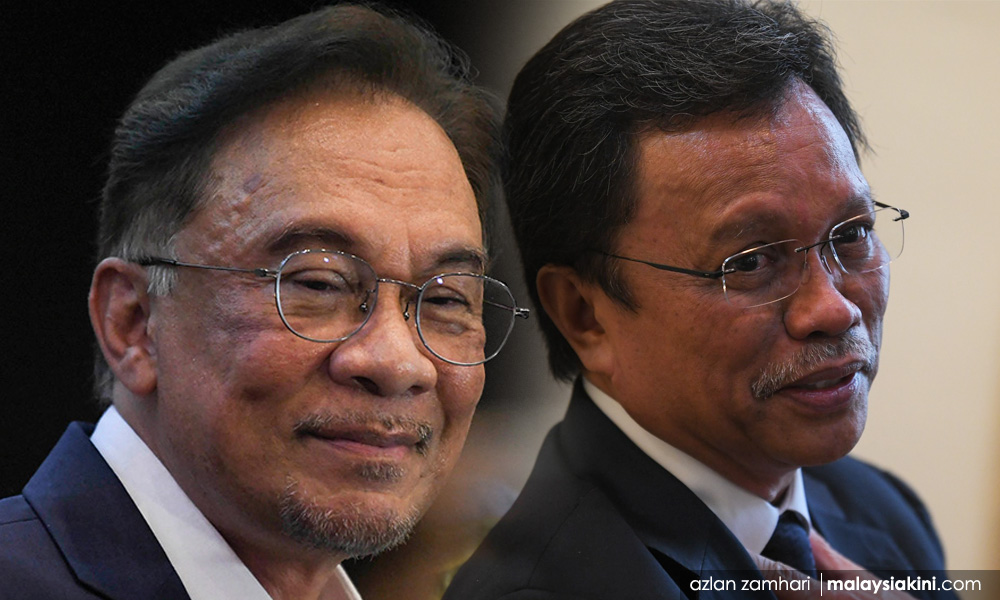
“I believe both were capable of becoming PM but provided that the ruling GPS coalition in Sarawak could be persuaded to throw its support behind either man,” she said.
But that shift was not forthcoming - not for Anwar nor for Shafie.
Indeed, the peculiar dynamics of East Malaysian politics has often led to unexpected results. While Shafie appeared to be riding high going into the last state election, Sabahans narrowly rejected Warisan and the Harapan parties at the previous state polls.
Regionalism and communalism are still major issues in the state, with Shafie unable to convince the Kadazan Dusun group to back him.
Liew believes that Sabahans must look beyond communal identity if it is to progress.
“No man is an island, so the concept of communalism has no place in today's modern society. The parochial ‘Sabah for Sabahans’ slogan is obsolete by now. Living in a globalised world, we cannot afford to live in isolation in this new era,” she said.
Liew is now juggling her position as Tawau MP with that of Api-Api assemblyperson, which is no small feat given that the two constituencies are over 450km apart.
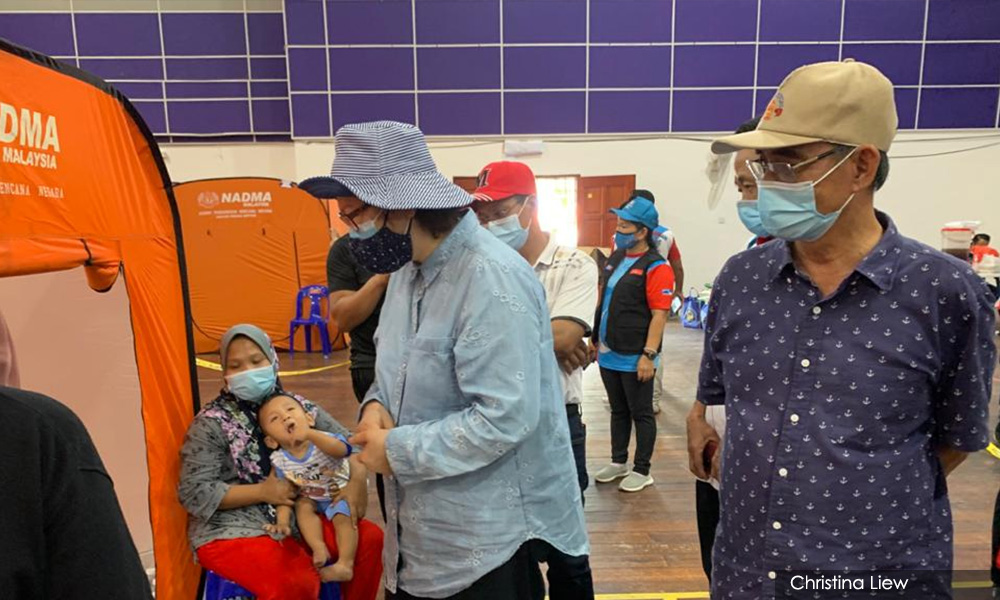
“This is no problem because I am familiar with both, and I have good teams to assist me on the ground.
“Besides, a flight from KK to Tawau takes less than one hour,” she added.
Tourism and environment agendas do not have to clash
Aside from being deputy chief minister in Shafie’s government, Liew also oversaw the crucial tourism, culture and environment portfolios. Some might argue that the needs of tourism and the environment don’t always go hand in hand, but Liew said it was not an issue.
“I didn't experience any conflict between my tourism and environment portfolios because the lines were clearly drawn.
“Certainly, there is a danger of the environment being sacrificed in favour of short-term economic gain if one is short-sighted.
“However, enforcement of regulatory tools like the mandatory environmental impact assessment report will ensure that environmental conservation will not be compromised when infrastructure development is implemented,” she added.
While she was in the state government, she had to contend with critics hitting out over proposed developments such as the Papar dam, Tanjung Aru Beach project and Lok Kawi reclamation project.
“The Warisan-led government defended its decision to construct the Papar dam on the grounds that Kota Kinabalu and other districts on the west coast needed ample water and power supply.
“While to conserve and preserve the ever-popular Tanjung Aru Beach as a natural heritage, the then government was also firm in its decision to scrap the Tanjung Aru Eco-Development project proposed by the previous BN government.
“As for the Lok Kawi Resort City project launched by the present GRS government, it is a rebranding of the KK Resort City project which was launched in May 2019 by Shafie, who was the chief minister then,” Liew said.
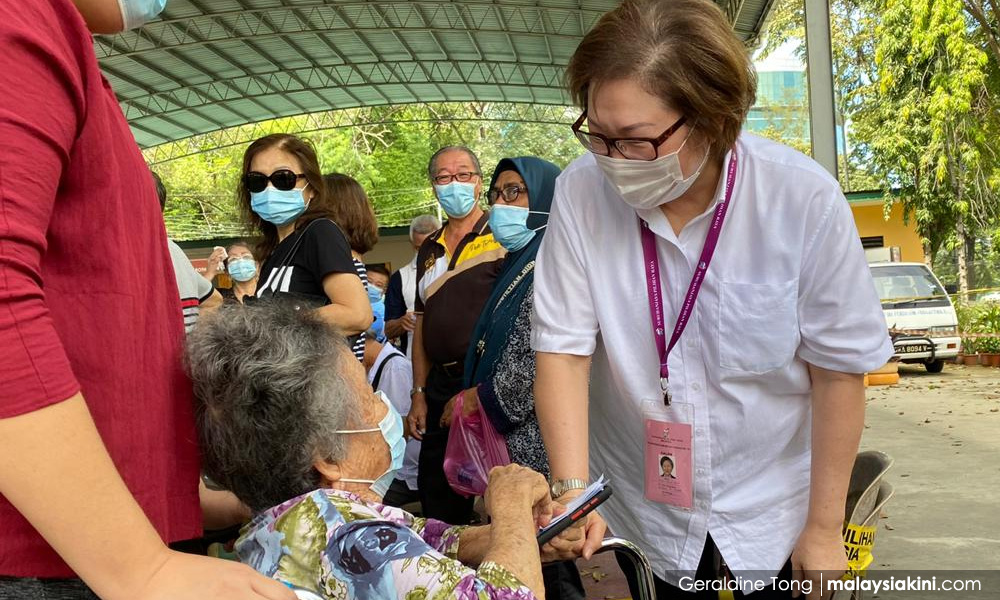
One of the glaring sticking points that Sabahans hold up as an example of the fact that the resource-rich state has been underdeveloped throughout decades of BN rule is its lack of transport infrastructure.
The Pan Borneo Highway/Trans Borneo Sabah Link was first proposed in the 1970s and has yet to be fully realised.
“As long as the Covid-19 pandemic rages on, we will never see the realisation of the Pan Borneo Highway/Trans Borneo Sabah Link.
“This has been cited as one of the factors for the long delay. However, if all problems relating to the construction of the Pan Borneo Highway are resolved, I am optimistic of the likelihood of seeing its completion,” Liew said.
The pandemic has exposed weaknesses in the health and infrastructure systems of the country and in the state in which Liew has been vocal about and challenges the authorities to do more for the people.
“Some of the shortcomings include lack of preparedness in facing emergencies of such magnitude, delay in procuring vaccines from the manufacturers, overstretched medical personnel, shortage of beds and medical equipment (such as ventilators), inadequate ambulance services and lack of quarantine centres.
“Speaking for Sabah, I think ensuring an adequate supply of Covid-19 vaccines to the state in general and to Tawau in particular as well as providing more quarantine centres need to be addressed urgently,” she said.
She lamented that nationally, Sabah is at the bottom rung in terms of vaccination rate.
“(In late August) for want of Pfizer-BioNTech vaccines, would-be second dose vaccine recipients were asked to go home and wait when they turned up at the vaccine administration centre (PPV) at the Sabah International Convention Centre (SICC) in Kota Kinabalu.
“Previously, several other PPVs in the state had to be shut indefinitely, pending the arrival of vaccines deployed by the state Covid-19 Immunisation Task Force (CITF) project management team (after receiving the consignment from the federal government),” Liew added.
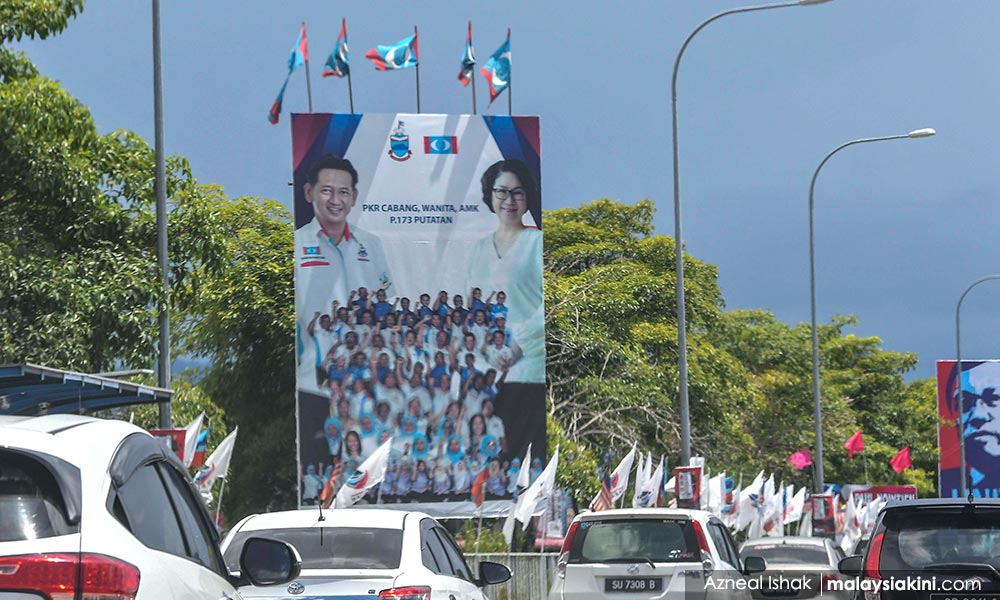
Sabah is known for party-hopping and Liew and her coalition partners even held a frog-themed dinner at last year’s state election as a jab against serial offenders such as Jeffrey Kitingan.
At the federal level, the Harapan government fell because of defections, not least from Liew’s own PKR party and she hopes to see anti-hopping laws put in place as one way to prevent constant instability.
“This is so common, given the freedom of association. Article 10 of the Federal Constitution guarantees Malaysian citizens the freedom of association.
“I think anti-hopping laws will work and we need such laws to promote political stability,” she concluded.
Gender equality issues must be addressed
Liew also hailed last week's Kuala Lumpur High Court ruling that children born overseas to Malaysian mothers who had foreign spouses are eligible for Malaysian citizenship.
She described the landmark decision as a legal victory for Malaysian women who have suffered gender discrimination for decades as their children were denied citizenship.
"We laud this court decision which is long overdue as justice has now been served. It is a huge relief for Malaysian mothers whose children (born abroad) are affected in terms of access to education and healthcare.
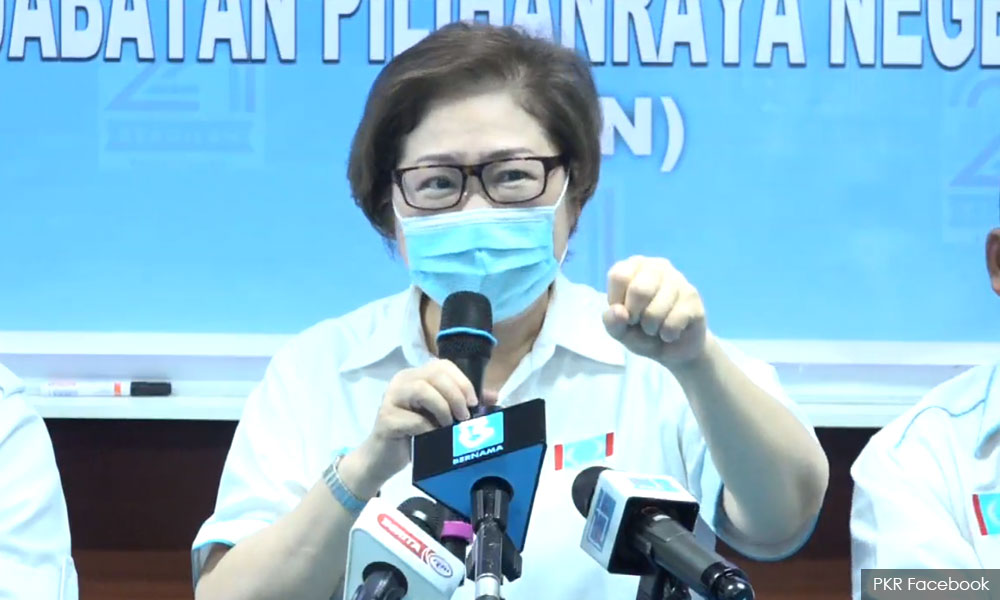
"For Malaysian women, it is a triumph for gender equality for which we have been struggling since the country gained independence from Britain.
"From now on, the government must support and uphold this principle of gender non-discrimination in granting automatic citizenship to children born to Malaysian mothers abroad," she added.
Liew also urged the Home Ministry to clear its backlog of applications for children's citizenship submitted by Malaysian mothers many years ago.
"With the High Court ruling, the children concerned should now be automatically conferred Malaysian citizenship by operation of law.
"In one particular case from Sabah, the Malaysian mother of a child (born overseas) told me that she submitted her application twice in five years since 2016, but to no avail.
"According to the mother, her daughter, being a non-citizen, could not enjoy the same privileges as Malaysian students in the school she is studying," she said. - Mkini



No comments:
Post a Comment
Note: Only a member of this blog may post a comment.